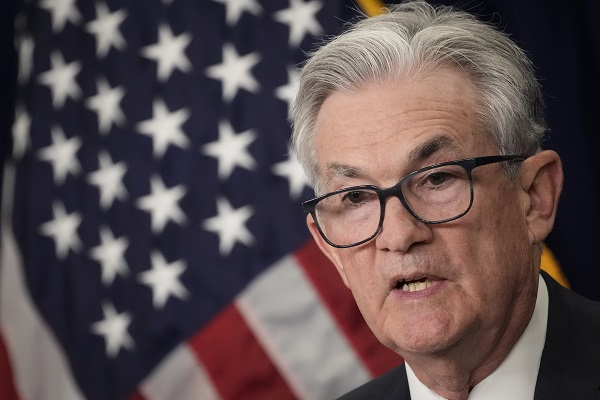Market snapshot: what happens next after Fed's massive rate hike?
16th June 2022 07:58
by Richard Hunter from interactive investor
American policymakers raised interest rates by more than they have have done at any meeting since 1994. Now, the world waits to see what happens next. Our head of markets discusses the possible impact.

Central banks remain the central focus as the baton passes to the Bank of England from the Federal Reserve.
Despite a hike of 0.75% from the Fed being at the high end of estimates, investors were sanguine on the basis of the news already being priced in, albeit at a late stage. Opinion is now split between whether this accelerated tightening will be more beneficial for the US economy in the long run, or whether an overenthusiastic policy will result in recession.
The Fed maintains that the economy is currently sufficiently strong to withstand the additional pressure and, indeed, has not ruled out a further hike of a similar magnitude in July. How quickly the effects of the rises wash through to the economy remains to be seen and, with the second quarter reporting season closing in, comments from the corporate world will be a key determinant in nearer term market fluctuations.
Indeed, the likely pressure on earnings will guide views on the immediate outlook, and the strength of the consumer against an increasingly difficult backdrop will be an important factor in explaining the current trading situation on the ground.
- A tactic to ride out the inflation storm using these funds and trusts
- The US funds beating the S&P 500 over the short and long term
- Recessions are becoming more likely – here’s how to invest
- Want to buy and sell international shares? It’s easy to do. Here’s how
In the meantime, the cautious rally following the Fed announcement has done little to alter a bleak picture over the last few months. In the year to date, the flagship S&P500 remains in bear market territory, having lost 20.5%, while the Dow Jones is down by 15.6% and the Nasdaq by 25.9%.
Asian markets were flat to positive overnight, with the hope that the Fed will be able to engineer a soft landing offset by more local issues. In China, dampened demand is a distinct possibility following the announcement of potential further lockdowns and mass testing, even though the authorities stand poised in the background to deliver some monetary assistance if needs be.
For the Bank of England, the consensus is for another rate hike of 0.25%, although inevitably the Fed’s decision to move the dial more quickly has led to speculation that the increase could be one of 0.5%.
Having been one of the first central banks to move in an attempt to quell inflation, the Monetary Policy Committee may not see the need for the higher hike, even if several of its members previously voted for a more aggressive increase.
In any event, investor interest will turn to sterling, which has been under some pressure of late, not least because of the forecast of likely tepid growth, and with a potential spat with the European Union also weighing.
- ii People’s Interest Rate Panel: our maiden vote on UK interest rates
- Jeff Prestridge: my message to investors
- Why world’s biggest fund manager isn’t buying the dip
- Why I’m downgrading this sector after successful tip
Such pressure could be an ironic boost for the FTSE100, where the majority of earnings come from overseas, thus making them more valuable in the translation back into sterling.
The premier index has lost some of its gloss more recently following a general dampening of global economic sentiment. Currently standing down by 1.9% in the year to date, the FTSE100 has nonetheless outperformed many of its global peers on a relative basis.
These articles are provided for information purposes only. Occasionally, an opinion about whether to buy or sell a specific investment may be provided by third parties. The content is not intended to be a personal recommendation to buy or sell any financial instrument or product, or to adopt any investment strategy as it is not provided based on an assessment of your investing knowledge and experience, your financial situation or your investment objectives. The value of your investments, and the income derived from them, may go down as well as up. You may not get back all the money that you invest. The investments referred to in this article may not be suitable for all investors, and if in doubt, an investor should seek advice from a qualified investment adviser.
Full performance can be found on the company or index summary page on the interactive investor website. Simply click on the company's or index name highlighted in the article.